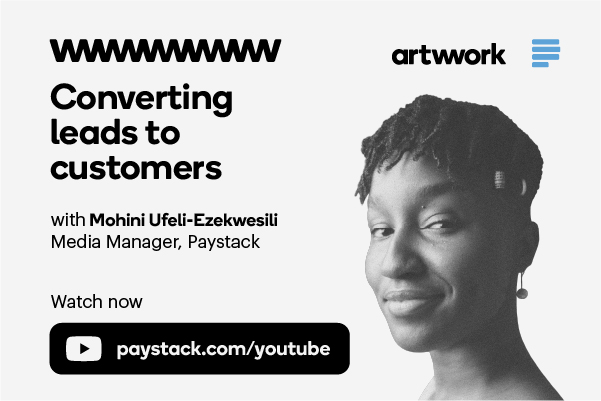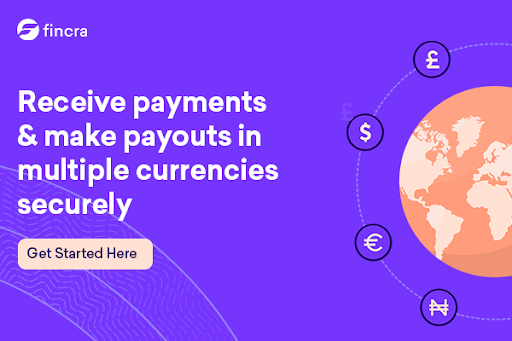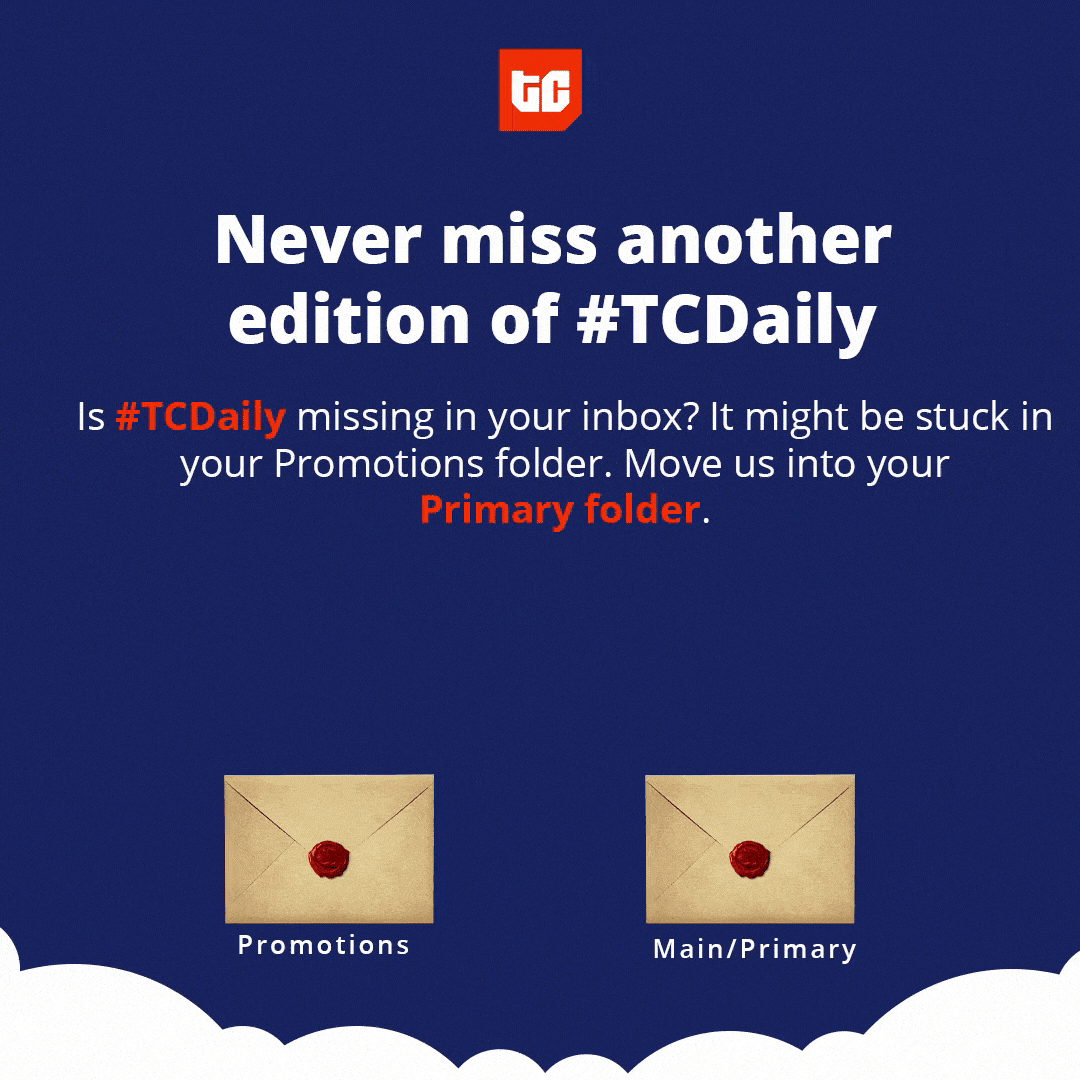
IN PARTNERSHIP WITH



TGIF 🌄
On Monday, military officials in Burkina Faso a staged a coup that ousted President Roch Marc Christian Kaboré.
Burkina Faso follows Mali, Chad, Guinea and Sudan to become the fifth African country to experience a coup d’etat within the past year.
In today’s edition
- Quick Fire 🔥
- Who got into #YouTubeBlack Voices Fund?
- The history behind the nicknames of African cities
- TC Insights: Funding Tracker
- Job opportunities
QUICK FIRE 🔥 ERNESTINA BERRY
Ernestina Berry is a Senior Account Manager at Wimbart, an independent PR agency in London specializing in Africa and emerging market tech start-ups.
With over 9 years’ experience in global communications, corporate public relations as well as experience in editorial work and publishing, she has expertise across sectors including aviation, education, NGOs, charities and tech.
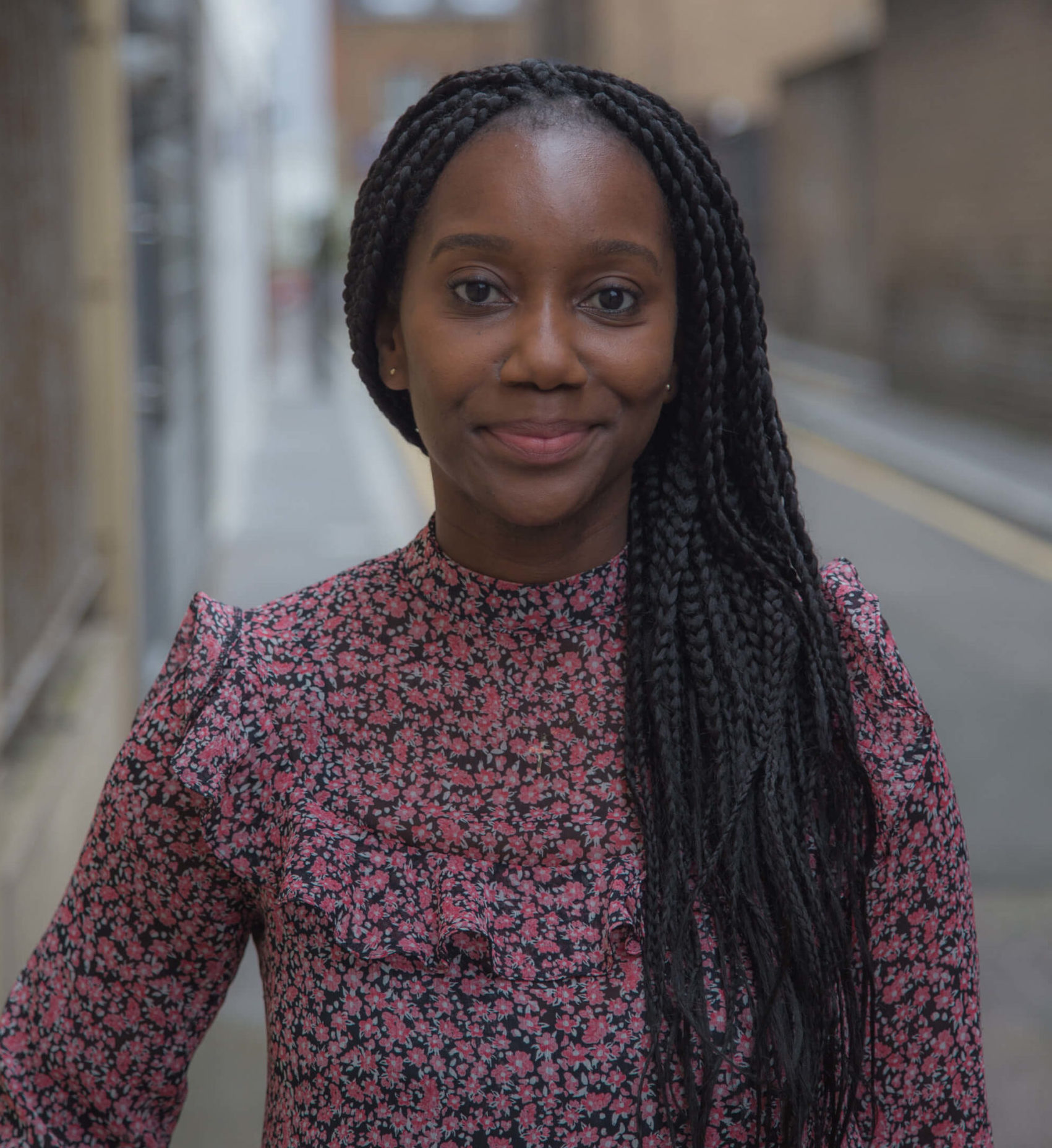
Explain your job to a five-year-old
I help companies share their really cool stories to the world through newspapers, TV, radio or even the internet.
What’s something you wish you knew earlier in your career/life?
It would be the importance of going out of your way to make things happen on your own and taking more calculative risks. This applies to life in general, but in terms of my job, it means taking risks in getting the best for your clients. That means pushing pitches to big publications, even when it seems unlikely. You can’t always tell what elements of a story publications will be interested in.
What’s the most promising thing about tech in Africa?
It’s the people. We have so many talented young people on the continent becoming well versed in so many sectors. For example, in fintech, we’re developing so many solutions that are aiding our economies to progress. There are so many exciting things happening and it all boils down to these young founders. It’s something that blows my mind because you’ll find that a lot of these young founders are under the age of 30 or in their early 30s. They have the passion and the intelligence to head these sectors which are inevitably moving the continent forward.
What (singular) achievement are you most proud of?
Can I say two? I’m Ghanaian, but before 2012, I’d never lived there. So the first would be moving back to Ghana in 2012, connecting with my roots, becoming more embedded in the system, and practising my language skills. Ghana is actually where I started my professional career in PR.
Very briefly, the second is helping my husband successfully keep our two-year-old alive (laughs). Not everyone realises it, but it’s the hardest thing! I may not be able to take care of plants, but at least I can keep a kid alive.
What’s something you love doing that you’re terrible at. And what’s something you really do not like doing that you’re great at.
Singing. I cannot sing. I’ve been known to belt out Backstreet Boys songs but I doubt very highly that they’ll be calling me anytime soon to be a backup singer.
I’m really good at ironing, but I don’t like it. But it’s a necessary evil that has to be done.
What should first-time founders know about communications and [the] press?
At Wimbart, we always advise founders to think about their startup narrative, what makes your business unique and interesting, and especially what you have to show for it.
It’s also important to know that not every startup is going to need PR right from the beginning. It’s crucial that you lay your foundation before you start looking for PR.
Then know who your audience is and what type of media they like to consume. Finally, follow the relevant journalists, look at the type of stories they cover and ask yourself / do some research to find out if you fit the bill before you reach out to them.
What do you think about Web3?
Ooh, this is a hard one. I think that if Web3 encourages or forces big tech companies to loosen their grip on social networks and marketplaces, if it allows a truly decentralised system, if it gives users greater control over the data they share, then surely, that’s a good thing?
Time will tell.
WHO GOT INTO #YOUTUBEBLACK VOICES FUND?
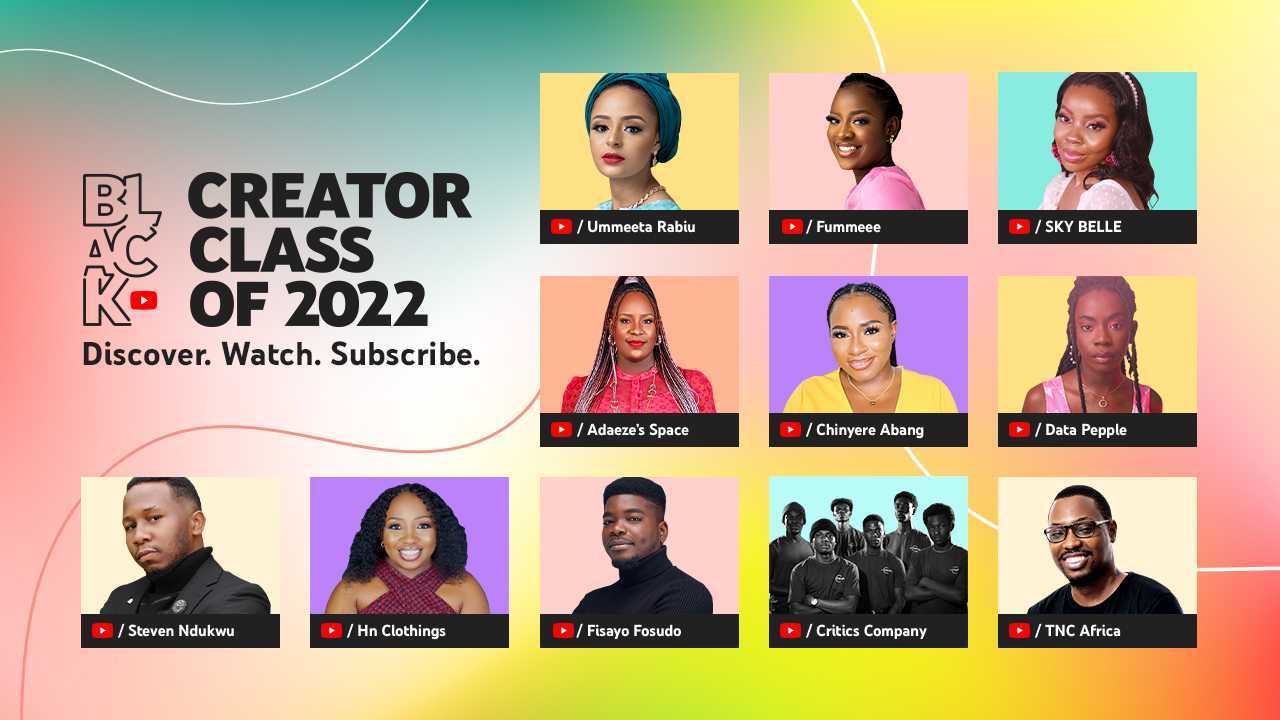
In 2020, YouTube launched the #YouTubeBlack Voices Fund to highlight black creators on its platform. The fund serves as YouTube’s commitment to “growing Black creators and music on our platform, by giving them access to resources to help them thrive on YouTube.”
There are over 51 million YouTube channels uploading 500 hours of video content every minute. Of this number, the top channels with over 1 million subscribers are professional content creators based in the US. The next countries with channels that have over 1 million subscribers are India and Mexico.
What these numbers mean, according to researchers, is that the top-rated channels get 90% of the total number of viewership on YouTube while everyone else, millions of channels and creators, are left to struggle with the remaining 10%.
And if you should know anything about YouTube, it’s that viewership = earnings.
How #YouTubeBlack Voices helps
The $100-million Fund provides black creators with access to resources that can help them grow their channel and develop their content. They’ll get workshops and masterclasses on production and content curation and even seed funding.
In 2021, twenty African creators were selected to be part of the inaugural class. The list included South Africa’s Lasizwe Dambuza, Kenya’s Patricia Kihiro, and Nigeria’s Dimma Umeh.
Who’s in 2022’s class?
Of the 135 creators selected for 2022’s class, 26 are African creators with 4 from Kenya, 10 from Nigeria, and 12 from South Africa.
The creators include Fisayo Fosudo, a Nigerian vlogger known for his reviews of tech products; food vlogger Mandi Sarro from Kenya; Michelle Expert, a South-African entrepreneur whose channel focuses on business and sales; and The Critics Company, a Nigerian team creating sci-fi shorts with DIY equipment.
In Ep. 6 of Artwork, learn how to convert leads to happy customers.
👉🏾 Watch now.
This is partner content.
THE HISTORY BEHIND THE NICKNAMES OF AFRICAN CITIES
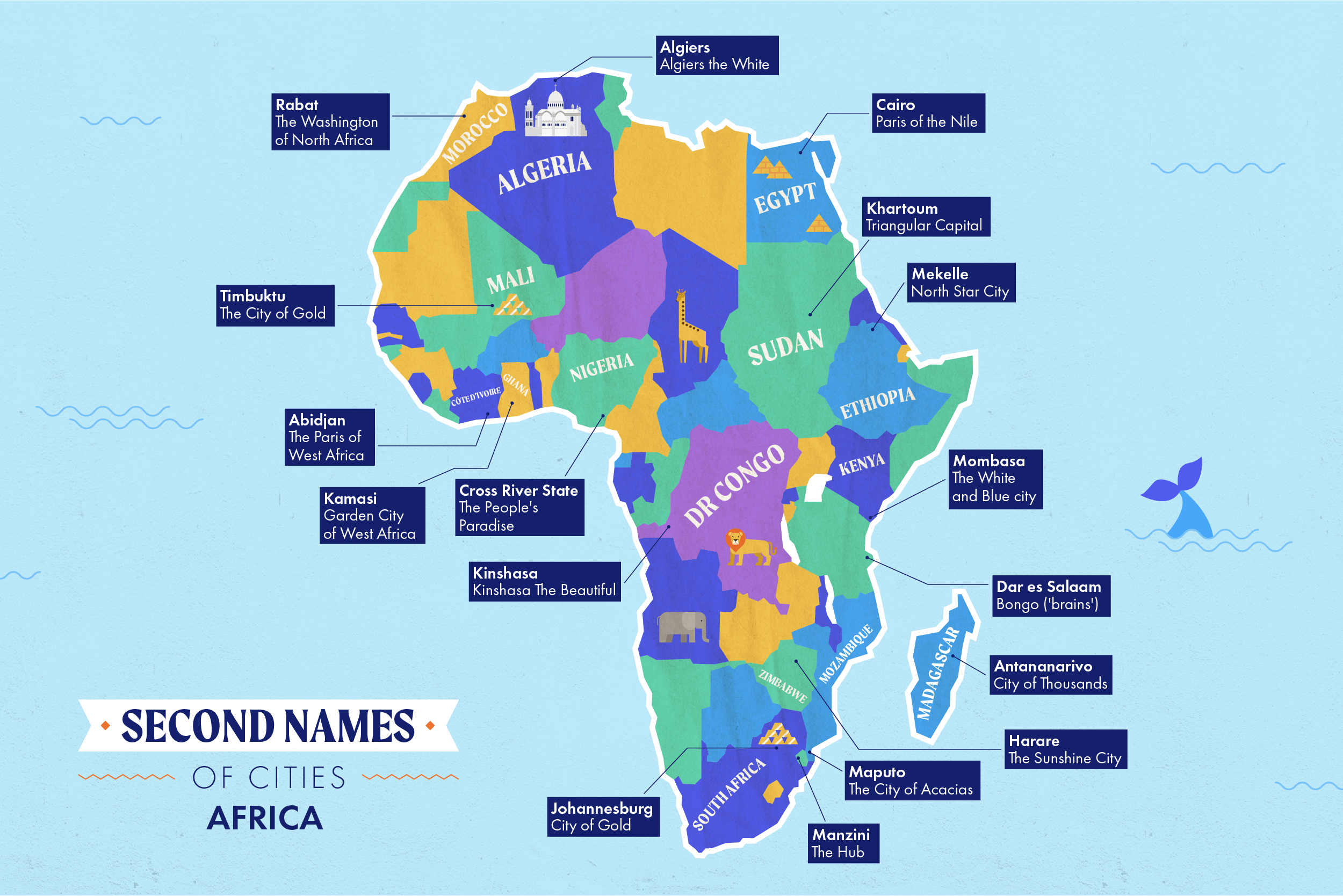
Once in a while, we find little bits of research with exciting reports. Last year, we shared this one by Tajmeeli which examined the most popular beauty brands on the continent.
Yesterday, we found another one that examines the history behind nicknames of iconic African cities. Now, while we did not find out why Lagos is nicknamed “The Ghetto” (no shade intended to Nigerians), we did find out some pretty interesting facts about other cities.
Jury’s Inn—a hotel group operating across the UK—undertook research and uncovered the history behind the alternative names for cities across Europe, North & South America, Asia, Oceania, and Africa.
Here’s what the study says about African cities:
- Rabat, Morocco–The Washington of North America: This capital city is nicknamed the Washington of North Africa because of its wide boulevards, parks, monuments, embassies, and government buildings.
- Khartoum, Sudan–Triangular Capital: This nickname is thanks to the nearby Blue Nile River and the White Nile River that combine into the single Nile River, forming a triangular shape. The Nile River then flows northward into Egypt.
- Antananarivo, Madagascar–City of Thousands: The capital of Madagascar, Antananarivo, is named the “City of Thousands” in honour of the thousands of soldiers who guarded the city in the seventeenth century at the time of a Malagasy King named Andrianjaka.
- Johannesburg, South Africa–City of Gold: Johannesburg sits on the edge of the world’s largest known gold deposit. Gold was traded here for centuries before the area was first declared open for public digging in 1886.
- Maputo, Mozambique–City of Acacias: Maputo is known as the “City of Acacias” due to many of its streets and avenues commonly being bordered by lush acacia trees.
- Kumasi, Ghana–Garden city of West Africa: Thanks to its beautiful green areas, Ghana’s second-largest city Kumasi earnt the name of “Garden City of West Africa” in which dates to the 1940s.
Quidax is one of Africa’s largest cryptocurrency exchanges that allows anyone to access Bitcoin and other cryptocurrencies from anywhere in the world. With the new Quidax app, anyone can trade over 30+ cryptocurrencies, get market reports, easily withdraw funds in your local currency and so much more.
Download the new Quidax app today!
This is partner content.
TC INSIGHTS: FUNDING TRACKER
This week, Tunisian artificial intelligence (AI) startup InstaDeep raised a $100 million Series B round— the largest amount any African startup has raised so far in 2022. The round was led by Alpha Intelligence Capital together with CDIB. Other investors include BioNTech, Chimera Abu Dhabi, Deutsche Bahn’s DB Digital Ventures, Google, G42, and Synergie.
Here are the other deals for the week:
- Tanzanian fintech startup NALA secured $10 million from Amplo, Accel, and Bessemer Partners, with participation from the founders of Monzo, Robinhood, Alloy, and Deel. and Peeyush Ranjan, the head of Google Payments.
- Senegalese startup PAPS raised a $4.5 million pre-Series A round in an investment co-led by 4DX Ventures and Orange, with participation from existing investors such as Saviu Ventures and Uma Ventures as well as new investors including Yamaha Motors, LoftyInc Capital Management, Proparco, the Google Black Founders Fund, To.org, Kepple Africa Ventures, and Enza Capital.
- South African fintech Floatpays secured $4 million in an oversubscribed seed funding round from Global Founders Capital, Base Capital, Finca Ventures, Raba Partnership, and 4DX Ventures, Alan Rutledge, Shaun Hurwitz, Youcef Oudjidane and Olugbenga Agboola.
- Ghanaian fintech startup OZÉ, raised a $3 million pre-Series A round led by Speedinvest with the inclusion of Cathay AfricInvest Innovation Fund, Savannah Fund, and several angels “experienced in operating and investing in global fintech”.
- Egyptian e-commerce startup ExpandCart secured a $2.7 million pre-Series B bridge round. This was led by Hong-Kong-based Betatron Venture Group, with participation from Sawari Ventures and Agility Ventures.
- South Africa’s TallOrder, a developer of advanced cloud-based point of sale (POS) solutions, raised $3.1 million in additional Series A funding. The investment came from Investec Private Capital, as well as a consortium led by Nurture Investment Management.
- Kenyan fintech startup Zanifu received $1 million in seed funding from Saviu Ventures, as well as Launch Africa Ventures, Sayani Investments, and angel investors from Kenya and Nigeria.
- South African startup CompariSure raised $980,000 in pre-Series A funding led by HAVAÍC and featuring 4Di Capital.
That’s it for this week!
Follow us on Twitter, Instagram, and LinkedIn for more updates on funding deals.
JOB OPPORTUNITIES

Every week, we share job opportunities in the African ecosystem
- Big Cabal Media – Software Developer, Sales Associates – Lagos, Nigeria
- Decagon – Design Intern – Africa (Remote)
- Backdrop – Graphic Designer – Africa (Remote)
- Mono – Senior UI Designer – Lagos, Nigeria
- Moni Africa – Operations Analyst – Lagos, Nigeria
There are more opportunities here. If you’d like to share a job opening or an opportunity, please fill this form.
Fincra is a payment infrastructure that provides fintechs, online platforms and global businesses with reliable payment solutions for quick collections and payouts in different currencies. You can gain access to Fincra’s payments platform or integrate their APIs for seamless payments processing.
This is partner content.
What else we’re reading
- What African founders think about the new $500,000 Y Combinator deal.
- Zimbabwean James Manyika, becomes Google’s first Senior Vice President of Technology and Society.
- How much do African coders make? Here are developer salaries in Africa in 2022.
- Facebook gives up on crypto ambitions with Diem asset sale.
- A bug in early creative commons licenses has enabled a new breed of superpredator.
- African diplomats are live-streaming and making deliveries to China’s consumers.









